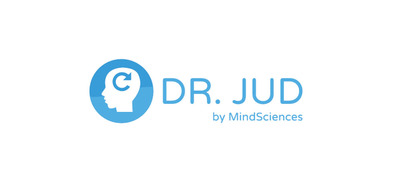Groundbreaking study provides mechanism of action for mindfulness interventions
Groundbreaking study provides mechanism of action for mindfulness interventions
WORCESTER, Mass., May 16, 2019 /PRNewswire/ -- In a National Institutes of Health-funded randomized controlled clinical trial, To Quit, MindSciences' smoking cessation app, has shown a dose-dependent relationship between app use and reduction in cigarette smoking. The trial involved 67 subjects who received either To Quit or QuitGuide, the National Cancer Institute's smoking cessation app. In the study, an area of the brain, the posterior cingulate cortex (PCC), known to be activated by smoking cues was followed using functional magnetic resonance imaging (fMRI). Dr. Jud Brewer, the study's principle investigator, associate professor at Brown University and MindScience's lead scientist explains that, "This study showed a specific effect of mindfulness training on the default-mode brain network at an individual level. The more the network was deactivated through app use, the more of a reduction in smoking observed, a true dose response relationship, yet this was specific to the individuals who received mindfulness training [the To Quit app]."

Smoking is the leading cause of death in the US, accounting for more than 480,000 deaths every year or about 20% of all deaths in the US. Its social and economic impact are immense and current cessation approaches that depend on will power are inadequate. Brewer added, "Both the apps tested had similar effects but only To Quit showed fMRI changes with the PCC. This is the first time that mindfulness training has shown a specific effect on a brain network, predicting reduction in smoking. The fact that brain changes predicted outcomes at the clinical level helps us zoom in on specific mechanisms that can start to individualize treatment and bring it to the level of personalized medicine." Digital therapeutics delivered as apps represent an accessible and affordable way for millions to benefit from an evidence-based treatment. Brewer, a practicing addiction psychiatrist added, "currently < 1% of apps are backed by evidence and clinical experience. We are really excited about the potential for this approach."
About MindSciences:
MindSciences (Dr.Jud brand) helps individuals break habits and change behavior through evidence-based digital therapeutics for overeating, anxiety and smoking cessation. The company offers a suite of digital therapeutics apps that use mindfulness learning techniques to manage addictions, cravings and behavior. See drjud.com for more information.
About Dr. Jud Brewer:
Dr. Jud Brewer, the lead scientist at MindSciences, is a recognized expert in behavior change. A neuroscientist and addiction psychiatrist, his work has been featured on 60 Minutes, at TED (4th most viewed talk of 2016), in Time magazine, Forbes, Businessweek, NPR, National Geographic, the New York Times and the Washington Post among others. He is the Director of Research and Innovation at the Mindfulness Center at Brown University's Mindfulness Center, an associate professor in the School of Public Health and School of Medicine, and the Founder of MindSciences.
For more information contact: press@mindsciences.com
![]() View original content to download multimedia:http://www.prnewswire.com/news-releases/mindsciences-to-quit-smoking-cessation-app-study-is-first-to-identify-the-neural-mechanisms-of-a-digital-therapeutic-mindfulness-intervention-for-smoking-cessation-at-the-individual-level-300851742.html
View original content to download multimedia:http://www.prnewswire.com/news-releases/mindsciences-to-quit-smoking-cessation-app-study-is-first-to-identify-the-neural-mechanisms-of-a-digital-therapeutic-mindfulness-intervention-for-smoking-cessation-at-the-individual-level-300851742.html
SOURCE Mindsciences




